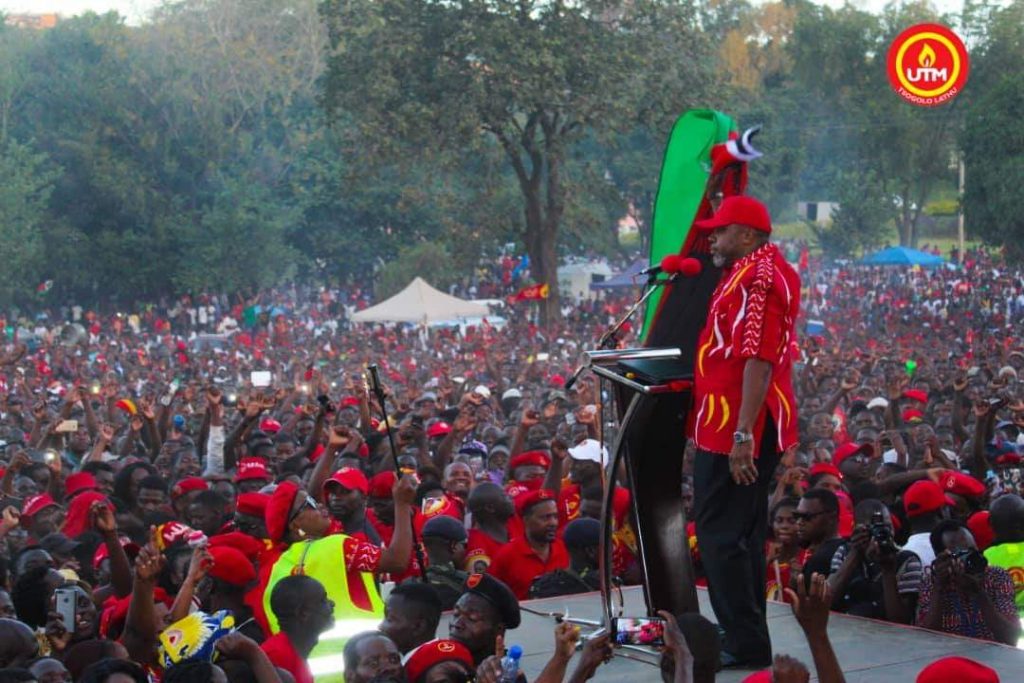By Steven Nhlane , Nation Online

My last entry: SKC, 2025 candidacy, law, touched some raw nerves but also excited others. I expected both kinds of responses. Those with opposing views argued that the 2009 Judicial Review bars anyone from holding office as second vice-president, first vice-president and as president for more than two consecutive terms.
My position is that the restriction is to the president only and not the second and first vice-presidents. But the Judicial Review bundled all of them together. It is faulty and should be challenged at the apex court.
Section 83 (3) of the Malawi Constitution provides that the president, first vice-president and second vice-president, may serve in their respective capacities a maximum of two consecutive terms. The key phrases are ‘respective capacities’ and ‘consecutive terms’.
‘Respective’ means belonging or relating separately to each of several people or things. ‘Capacities’ means position or post, job, office, according to the Collins English Dictionary. Respective capacities in Section 83(3) of the Constitution is, therefore, in reference to each of the three offices separately.
The dictionary defines consecutive terms as ‘following each other or successively, or without interruption.’ From the foregoing, respective capacities and two consecutive terms mean each one serving in his or her position for a maximum of two terms following each other. This means, for example, a president, vice-president or second vice-president serving in the same position for two terms following each other.
What is barred is each of them serving in the same position again after they have served two terms successively. 83(3) does not bar either a second or first vice-president from serving in a higher position after completing the maximum allowable terms in the lower office. The restriction is to the president who has completed two successive terms, having reached the pinnacle of his or her political career.
That was the case against Bakili Muluzi in his failed third-term bid. Muluzi or any other former president is also not envisaged to seek a lower office after serving two consecutive terms in the higher office.
The Judicial Review ruling rightly acknowledges that “Ordinarily, a vice-president would be eligible to contest for the office of the president when the president’s tenure comes to an end.” This is the case for Justin Malewezi in 2004, Thomas Jefferson 1801-1809, George W. Bush 2001 – 2009, and now Joe Biden of the United States of America, all of whom served two consecutive terms as vice-presidents.
But the Judicial Review states that the country’s Constitution bars this, saying “if it were not so one could in ascending order, be a second vice-president, then be a first vice-president and then the president, or, in descending order, be the president, first vice-president and then the second vice-president.”
The judges drew their conclusion from what they felt would be absurd or scary to have one person serving in the presidency for 30 years. But the Constitution has enough safeguards against people bull-dozing their way into the Presidency. For one to serve in the presidency for 30 years one would have to be appointed twice as 2nd VP, nominated and elected twice as 1ST VP and then elected twice as president. Such a person would have to be an exceptional genius.
The framers of the Constitution did not envisage that after serving as president for 10 years. one would still be hungry to seek political power at the lower office of 1ST VP and 2ND VP. If it were so, one could be former president and VP at the same time. How awkward! Additionally, who in their right frame of mind would risk their heavenly retirement benefits by seeking election to serve at a lower office? You cannot have both.
For me, the confounding clause and indeed the origin of the confusion and apprehension is the provision for the second vice-president which is not provided for in the Constitutions for countries cited in the ruling: Georgia, article 70(1), Luthuania, article 78; Slovakia, article 103; Finland, article 54. The Judicial Review ruling rightly states that the law for the countries referred to above only restricts service to the capacity in which one served.
It was to circumvent such unfounded fear that the judges in the Judicial Review case felt the best thing to do is what in Chitumbuka we call Kalulu na chivwati chake. When you want to kill your prey hiding in a small bush, you hit the whole bush, never minding what damage you do to it. It’s something akin to throwing away the baby with the bath water.
This is how we obtained the sweeping ruling that everyone—president, vice-president and second vice-president—who has served two consecutive terms in their respective positions is barred from holding any position in the office of the presidency. This is not rocket science to know it is faulty.
The 2009 Judicial Review ruling is not cast in stone. At the right time, if he so wishes, SKC can appeal to the apex court.-(Read original article: https://mwnation.com/more-on-skc-2025-eligibility/).


